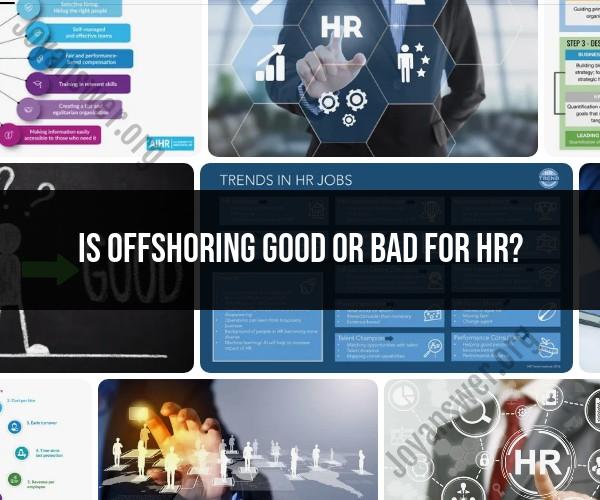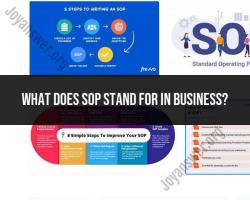Is offshoring good or bad for HR?
Offshoring in the context of Human Resources (HR) has both pros and cons, and whether it's good or bad depends on various factors and the specific objectives of the organization. Here are some of the pros and cons of offshoring HR functions:
Pros of Offshoring HR:
Cost Savings: Offshoring HR functions to countries with lower labor costs can lead to significant cost savings. This is particularly attractive for routine and administrative HR tasks.
Efficiency and Scalability: Outsourcing HR tasks can improve efficiency and scalability. Specialized HR service providers can handle tasks more quickly and efficiently, especially in high-volume areas like payroll and benefits administration.
Focus on Core Activities: Offshoring HR allows in-house HR staff to focus on more strategic, core HR functions, such as talent acquisition, employee engagement, and organizational development.
Access to Global Talent Pool: It provides access to a global talent pool, which can be beneficial for recruitment and workforce management. For instance, offshoring can be used for international recruitment or global HR management.
24/7 Support: Offshoring HR functions can provide 24/7 support for employees and organizations operating in multiple time zones.
Cons of Offshoring HR:
Loss of Control: One of the key drawbacks is a potential loss of control over HR functions. Outsourcing providers may not fully understand the organization's culture, values, and unique needs.
Quality and Compliance Concerns: Quality of service and compliance with local laws and regulations can be a concern, especially if the offshore HR provider does not fully understand or follow these requirements.
Data Privacy and Security: Offshoring HR functions may involve sharing sensitive employee data with third parties, raising data privacy and security concerns. Compliance with data protection laws is critical.
Communication Challenges: Language barriers, cultural differences, and time zone disparities can lead to communication challenges that affect the effectiveness of HR operations.
Employee Satisfaction: Outsourcing HR services can lead to reduced employee satisfaction if employees feel that their HR interactions lack personalization and responsiveness.
Reputation Risk: If offshoring leads to service issues or mistakes in HR functions, it can damage the organization's reputation both internally and externally.
Transition Challenges: The process of transitioning HR functions to an offshore provider can be complex and may require substantial time and resources.
In summary, offshoring HR functions can be advantageous for cost savings, efficiency, and accessing global talent, but it comes with challenges related to control, quality, compliance, and data security. The decision to offshore HR should be based on a careful assessment of your organization's needs, a thorough evaluation of service providers, and a clear understanding of the potential risks and benefits. Many organizations opt for a hybrid approach, where routine and administrative HR tasks are offshored while strategic HR functions remain in-house.
Offshoring and HR: Evaluating the Impact on Human Resources
Offshoring is the practice of relocating business processes or operations to a foreign country. This can include a variety of HR functions, such as:
- Recruitment and selection
- Payroll and benefits administration
- Training and development
- Performance management
- Employee relations
Offshoring HR can have a significant impact on a company's human resources department. Here are some of the key considerations:
- Cost savings: One of the main benefits of offshoring HR is the potential for cost savings. Labor costs are often lower in developing countries, and companies can also save money on other overhead costs, such as office space and equipment.
- Access to a wider talent pool: Offshoring can also give companies access to a wider talent pool. This can be especially beneficial for companies that are struggling to find qualified employees in their home country.
- Improved efficiency: Offshoring can also lead to improved efficiency. This is because companies can leverage the expertise of HR professionals in different countries to streamline their HR processes.
However, there are also some potential risks associated with offshoring HR. These include:
- Communication challenges: Language and cultural barriers can make it difficult to communicate effectively with offshore employees. This can lead to misunderstandings and errors.
- Security concerns: Companies need to be careful to protect their sensitive data when offshoring HR. This includes implementing strong security measures and carefully vetting offshore providers.
- Loss of control: When companies outsource HR functions, they lose some control over those functions. This can make it more difficult to ensure that HR practices are aligned with the company's overall business goals.
The HR Offshoring Debate: Weighing the Pros and Cons
The debate over HR offshoring is a complex one. There are both potential benefits and risks associated with the practice.
Proponents of HR offshoring argue that it can help companies to save money, improve efficiency, and access a wider talent pool. They also argue that offshoring can help companies to focus on their core competencies and to become more competitive in the global marketplace.
Opponents of HR offshoring argue that it can lead to job losses in developed countries, communication challenges, security concerns, and a loss of control over HR practices. They also argue that offshoring can have a negative impact on employee morale and productivity.
Globalization and HR Practices: Assessing the Effects of Offshoring
Globalization is having a significant impact on HR practices. As companies expand into new markets, they need to adapt their HR practices to meet the needs of different countries and cultures.
Offshoring is one way that companies are adapting to globalization. By offshoring HR functions, companies can gain access to a wider talent pool and reduce their labor costs. However, it is important for companies to carefully consider the risks associated with offshoring before making a decision.
Conclusion
Offshoring HR can be a complex decision. There are both potential benefits and risks associated with the practice. Companies need to carefully weigh the pros and cons before deciding whether or not to offshore their HR functions.













